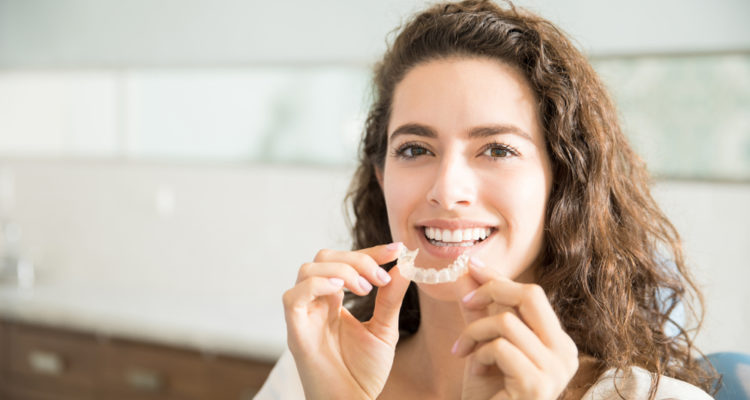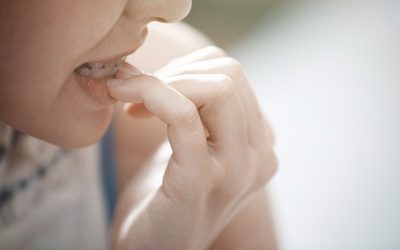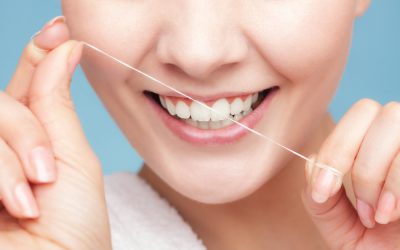When it comes to caring for dental hardware – such as braces, dentures, a retainer, or mouthguard – you should treat your equipment as if it’s a second pair of teeth. Like teeth, dental devices in your mouth are viable surface areas to collect food debris, plaque, and acids. When these unhealthy substances adhere to the hardware in your mouth, it can increase your risk for developing tooth decay, gum disease, and infections. Here are some tips on how to care for your specific piece of hardware.
Braces
Like teeth, braces need to be brushed twice a day and flossed daily. Before brushing, remove all the elastics out of your mouth, and then brush along the top, bottom, and front of each wire and bracket. You may also find it worthwhile to invest in an oral irrigation system, to flush out leftover debris and food pieces around your orthodontic hardware. Complete your cleaning with a fluoride rinse for an extra swish of tooth strengthening – click here to learn more about what to look for in a mouthwash. When braces are placed, you may also receive a proxabrush; this “Christmas tree” brush is specially shaped to fit in between brackets and wires to remove plaque and build-up. While you have braces, be mindful of the foods you eat: stay away from foods that are chewy, hard to bite (such as apples or corn on the cob), popcorn, hard candies, and chewing gum. Do not bite your nails or chew on other objects. Foods that are hard or sticky may crack or break expensive braces.
Retainers
You should be cleaning your retainer at least once a day with toothpaste and warm water. Deep clean your retainer if you see calcium or tartar deposits forming on the hardware. A simple deep-cleaning solution is to soak your retainer in vinegar and warm water for a few minutes to loosen build-ups, and then scrub the remaining residue off with toothpaste. Make sure you have a case for your retainer – a loose one is easily wrapped up in a napkin and thrown away, put in a pocket and sat on, or found by dogs and chewed on. Once broken or lost, retainers are expensive to replace. Most importantly, wear your retainer as often as prescribed by your orthodontist. While you may not feel like a retainer is doing anything day to day, over the long run it is working every day to keep your teeth straight.
Mouthguards
Your dentist or orthodontist may have made you a soft, fitted mouthguard for use during sports, or for use at night to protect teeth against teeth grinding damage. This durable piece of hardware with numerous ridges and dips is the ideal breeding ground for bacteria, fungi, and yeast. Infestations of unhealthy bacteria, fungi, and yeast can lead to painful mouth infections if left untreated. To protect against bacterial build-ups, clean your mouthguard after every use. A toothpaste and water scrub will be sufficient. Dry your mouthguard thoroughly afterwards and store it in a dry, vented case when not in use. A vented case is necessary to let the hardware breathe, and prevent bacteria from festering in damp, enclosed places.
Dentures
Dentures should be removed and rinsed after you finish eating, for every meal. Stand over a towel or basin of water while you rinse and handle dentures, to avoid breakage if the hardware falls. You should be washing out your mouth and tongue with a toothbrush and toothpaste after you eat as well, before you replace the newly-rinsed dentures. Do not use toothpaste or products with bleach to clean your dentures – toothpaste is too abrasive and could scratch the material, and bleach can weaken dentures and change the color. Never place dentures under hot water – high temperatures will warp the material. Most dentures need to remain moist to retain their shape; soak dentures overnight in a mild denture cleaner or water. Rinse the hardware again before morning use – denture cleaner contains harmful chemicals you do not want to ingest.
If your dental hardware is broken, cracked, chipped, or causing pain in your mouth, see your dentist or orthodontist right away. Any piece of dental equipment can accumulate bacteria, fungi, plaque, yeast, and acid, and thus increase your risk of tooth decay, gum disease, or mouth infection. Regular check-ups with your dentist are important to detect early cavities and ensure the health of your teeth. If you are due for your next dental examination, contact Boyett Family Dentistry today at 863-294-9200 to schedule an appointment.





